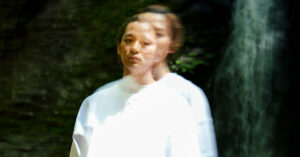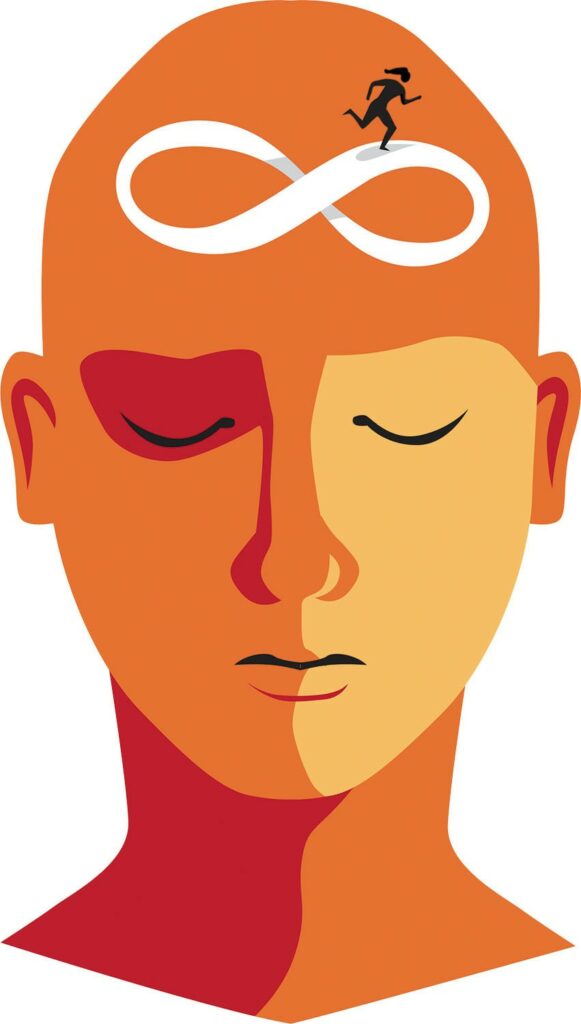We all know what OCD is, but did you know that there are different types of obsessions? In this blog post, we will discuss 12 fascinating obsessions in OCD that people often experience. Some of these may surprise you! If you are struggling with OCD, it is important to understand the different types of obsessions so that you can get the help you need.
Contents
What Is Obsessions In OCD?
 Obsessions in OCD are when someone has unwanted, intrusive thoughts, images, or urges that cause anxiety or distress. These obsessions can be about anything including germs, dirt, contamination, and harm to oneself or others. People with OCD often try to control their obsessions by doing things such as washing their hands over and over again or avoiding places where they think they might get contaminated.
Obsessions in OCD are when someone has unwanted, intrusive thoughts, images, or urges that cause anxiety or distress. These obsessions can be about anything including germs, dirt, contamination, and harm to oneself or others. People with OCD often try to control their obsessions by doing things such as washing their hands over and over again or avoiding places where they think they might get contaminated.
In fact, the word “obsession” comes from the Latin word obsess, which means “to besiege.” This is because obsessions can take over someone’s life and make them feel like they’re under siege. So, in simple words, it is an unwanted, repetitive thought, image, or urge that causes distress.
Obsessions in OCD can be about anything that the person fears might happen. For example, a parent with OCD might be obsessed with the idea that their child will get hurt if they don’t do everything perfectly.
What Are The Types Of Obsessions In OCD?
Obsessions in OCD is a broad term that can be difficult to define. However, there are some general characteristics that most obsessions share. Typically, obsessions are intrusive and unwanted thoughts, images, or impulses that cause distress and anxiety.
Obsessions are often repetitive and can be accompanied by compulsions, which are behaviors or mental acts. That a person feels compelled to do in order to relieve the anxiety caused by the obsession.
12 Types Of Obsessions In OCD
There are numerous types of obsessions in OCD, some of these are as follows;
Contamination Obsessions
This is very common in OCD and can manifest in a fear of germs, dirt, or toxins. People with contamination obsessions often worry about contracting illnesses or contaminating others. Moreover, contamination obsessions are often accompanied by compulsions. Both are majorly time-consuming and significantly interfere with a person’s quality of life. There are numerous contamination obsessions signs, such as;
- Excessive handwashing
- Avoiding touching doorknobs, public transportation, or shaking hands
- Showering for long periods of time
- Wiping surfaces obsessively
- Checking for contaminants
This can be very difficult to live with, as it’s often hard to avoid things that may cause anxiety. Additionally, people with contamination obsessions may also have a fear of vomit, blood, or other bodily fluids.
Hoarding Obsessions
Hoarding is a type of obsession in OCD that is characterized by an excessive need to save items. People with hoarding obsessions often feel the need to keep things that others would consider worthless. Although, the things which they collect are of no value to them. They may have a difficult time throwing things away and may feel extreme anxiety when doing so. These things can be;
- Junk mail
- Old newspapers
- Clothes
- Shoes
The hoarder may feel like they need to keep these things in case they are needed in the future. However, hoarding often causes significant distress and interferes with daily life, such as;
- Inability to use rooms in the house due to clutter
- Not being able to invite people over due to embarrassment
- Increased risk of fire
Hoarding can be a very difficult obsession to live with and often requires professional help. As it can be very dangerous and cause significant distress.
Relationship Obsessions
 This type of obsession is characterized by excessive thoughts and doubts about a romantic relationship. People with relationship obsessions often worry that their partner will cheat on them or leave them. They may also have difficulty trusting their partner and may feel the need to constantly check in on them or monitor their behavior. Relationship obsessions can cause a great deal of anxiety and can interfere with the quality of the relationship. Some signs of this obsession are;
This type of obsession is characterized by excessive thoughts and doubts about a romantic relationship. People with relationship obsessions often worry that their partner will cheat on them or leave them. They may also have difficulty trusting their partner and may feel the need to constantly check in on them or monitor their behavior. Relationship obsessions can cause a great deal of anxiety and can interfere with the quality of the relationship. Some signs of this obsession are;
- Continually asking your partner if they love you
- Checking your partner’s phone or email without their permission
- Following your partner to see if they are cheating on you
- Accusing your partner of cheating on you when they have not
These obsessions can be very difficult to live with and often cause a great deal of distress. Hence, identify the signs and deal with them as soon as possible.
Obsessions With Symmetry And Orderliness
This is a type of OCD that is characterized by a need for things to be symmetrical or in a certain order. People with this obsession often have difficulty tolerating even the slightest amount of disorder. Some signs of symmetry and orderliness obsessions are;
- Arranging items until they are perfect
- Spending excessive time straightening up
- Becoming agitated if things are not in their proper place
- Being unable to stop moving objects until they are symmetrical
These obsessions in OCD can be really time-consuming and can interfere with a person’s quality of life. If you have these obsessions, it is important to seek help from a professional.
Health Anxiety Obsessions
People with health anxiety obsessively worry about their health or the health of others. They may have a fear of contracting diseases or becoming ill. Health anxiety obsessions often cause a great deal of distress and can interfere with a person’s quality of life. Health anxiety obsessions are also considered hypochondria.
Some signs of health anxiety obsessions are;
- Checking for symptoms of diseases or illnesses
- Constantly researching health information
- Worrying about contracting diseases or illnesses
- Becoming preoccupied with thoughts of death
Moreover, Health anxiety obsessions can be very distressing and may cause a person to avoid activities or places. At where a person may think that they might contract a disease. It is important to seek help from a professional if you think you may have health anxiety obsessions.
Checking Obsessions
 People with checking obsessions often worry that they have made mistakes or left something undone. They may feel the need to check things repeatedly to make sure they are safe or done properly. In fact, checking can become so time-consuming that it interferes with a person’s quality of life. Some signs of checking obsessions are;
People with checking obsessions often worry that they have made mistakes or left something undone. They may feel the need to check things repeatedly to make sure they are safe or done properly. In fact, checking can become so time-consuming that it interferes with a person’s quality of life. Some signs of checking obsessions are;
- Checking the stove repeatedly to make sure it is turned off
- Checking the locks on doors and windows multiple times
- Re-reading texts or emails to check for mistakes
- Checking to see if the lights are off multiple times
These checking obsessions are often considered to be a part of OCD. At first, they may seem like harmless habits. But, they can become very time-consuming and can interfere with a person’s quality of life. Recognize the signs and get help from a professional if you think you may have this type of obsession.
Obsessions With Numbers And Counting
This type of OCD is characterized by an obsession with numbers and counting. People with this type of OCD often have superstitious beliefs about numbers and their importance. According to a study, this type of OCD is more common in men than women. It is also believed to be more common in people with higher levels of education. Some signs of numbers and counting obsessions are;
- Having an obsession with a certain number or sequence of numbers
- Believing that certain numbers are good or bad luck
- Counting objects excessively
- Arranging objects in a certain order
Counting numbers or objects can become so time-consuming that it interferes with a person’s quality of life. In fact, this often leads to social isolation and anxiety. If you have this type of OCD, it is important to seek help from a professional.
Obsessions With Body Image
Body image obsessions are characterized by an intense preoccupation with one’s appearance. In this type of OCD, people often worry about their weight, skin, hair, and other physical features. People with body image obsessions often have a distorted view of their bodies.
They may see themselves as being overweight even when they are not. Body image obsessions can lead to an eating disorder called anorexia nervosa. In simple words, it can be said that people with this type of OCD are obsessed with being thin. Some signs of body image obsessions are;
- Being preoccupied with thoughts of food and weight
- Wearing clothes that cover the body to hide imperfections
- Checking the mirror excessively
- Comparing oneself to others
Obsessing over body image can cause a great deal of distress and can interfere with a person’s quality of life. It even leads people toward mental disorders like anorexia nervosa. So, it is important to seek professional help if you think you may have this type of OCD.
Obsessions With Death And Injury
 People with this type of OCD may worry about dying or harming themselves or others. It is believed that in this type of OCD, obsessions are usually related to specific fears like;
People with this type of OCD may worry about dying or harming themselves or others. It is believed that in this type of OCD, obsessions are usually related to specific fears like;
- dying from a disease
- being in a car accident
- being attacked
These types of obsessions can be very distressing and may cause a person to avoid activities or places. Also, these thoughts are intrusive and can be hard to control. As intrusive thoughts in OCD are generally not based on reality. So it may encourage you to do things to ease your anxiety which can be harmful.
For example, you may avoid going outside because you are afraid of dying in a car accident. But, this will only make your anxiety worse in the long run. So, if you have this type of OCD it is important to seek professional help.
Obsessions With Sexuality
Sexual obsessions are characterized by intrusive and unwanted sexual thoughts. People with this type of OCD may worry that they are gay, heterosexual, or pedophilic. They may also have fears about acting on their sexual impulses. In fact, in this type of OCD, people may have obsessions about;
- Their sexual orientation
- Their sexual attraction to children or animals
- Sexual fantasies
People with this type of OCD often have a hard time accepting their sexuality. They may feel shame, disgust, and anxiety about their thoughts. Sexual obsessions can lead to social isolation and anxiety. And, compulsions, on the other hand, are associated with sexual obsessions. That includes avoidance of people or places perceived to be sexually stimulating, compulsive masturbation, and checking for evidence of homosexuality.
It is important to get help with this type of OCD as it can be very distressing. And, the compulsions associated with this type of OCD can be harmful.
Obsessions With Religion And Spirituality
This type of OCD is characterized by an obsession with religious or spiritual beliefs. People with this type of OCD may worry that they are going to hell, being punished by God, or being possessed by a demon. In fact, those people believe that their thoughts are sinful or blasphemous. People with this type of OCD often have a hard time praying or going to religious places.
This is because they worry that their thoughts will be confirmed. And, this can lead to social isolation and anxiety. And, compulsions associated with religious obsessions may include;
- Praying excessively
- Trying to avoid thoughts
- Checking for religious symbols
Obsessions with religion and spirituality can be very distressing. And this can even lead to depression. So, if you think you may have this type of OCD it is important to seek professional help.
Obsessions With Perfectionism
 This is the most common type of OCD. People with this type of OCD often have obsessions about;
This is the most common type of OCD. People with this type of OCD often have obsessions about;
- Making mistakes
- Being imperfect
- Doing things perfectly
People with this type of OCD often try to control their thoughts and actions. And, they may spend a lot of time doing things to make sure that everything is perfect. However, being so much obsessed with perfectionism, only makes them feel more anxious and stressed.
People who have this type of obsession often have compulsions such as;
- Checking and rechecking their work
- Arranging things in a certain way
- Avoiding things that perceive as imperfect
Moreover, people with perfectionism sense need to understand that no one is perfect. So, it is important to seek professional help to ease your anxiety. Otherwise, it will only make your OCD worse.
Conclusion
To conclude, there are a wide variety of obsessions in OCD. These obsessions can range from common, everyday worries to more complex and intrusive thoughts. If you or someone you know is struggling with OCD, it is important to seek professional help.
If you are looking for affordable Online OCD Counseling MantraCare can help: Book a trial OCD therapy session
Moreover, if you found this article interesting, then don’t forget to share it with your friends and family. Thanks for reading!


